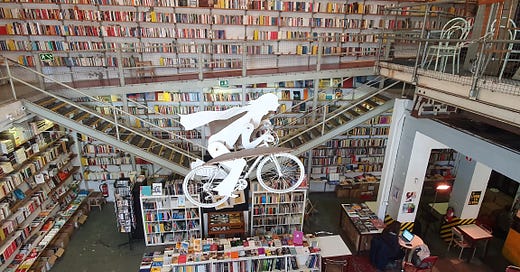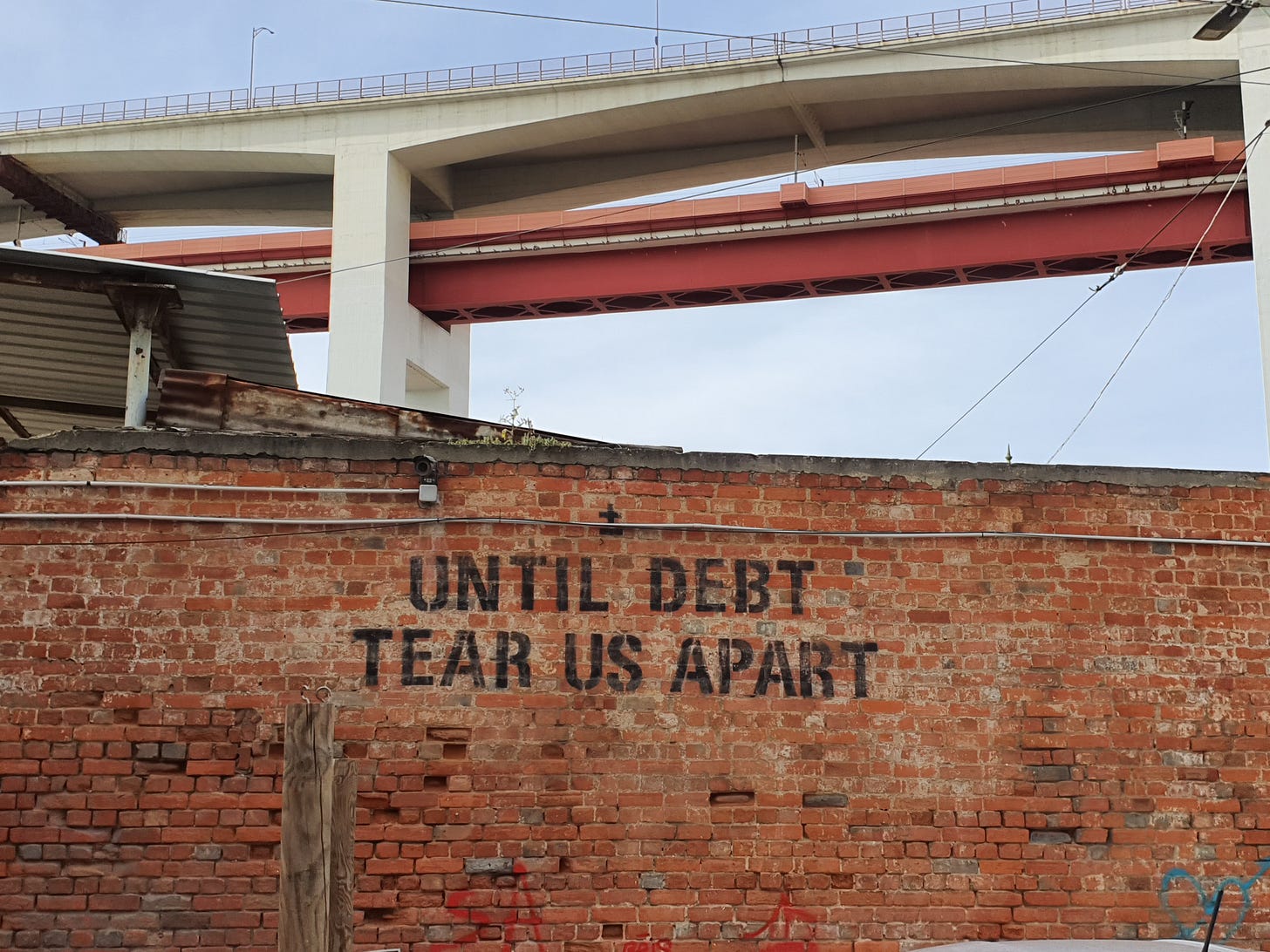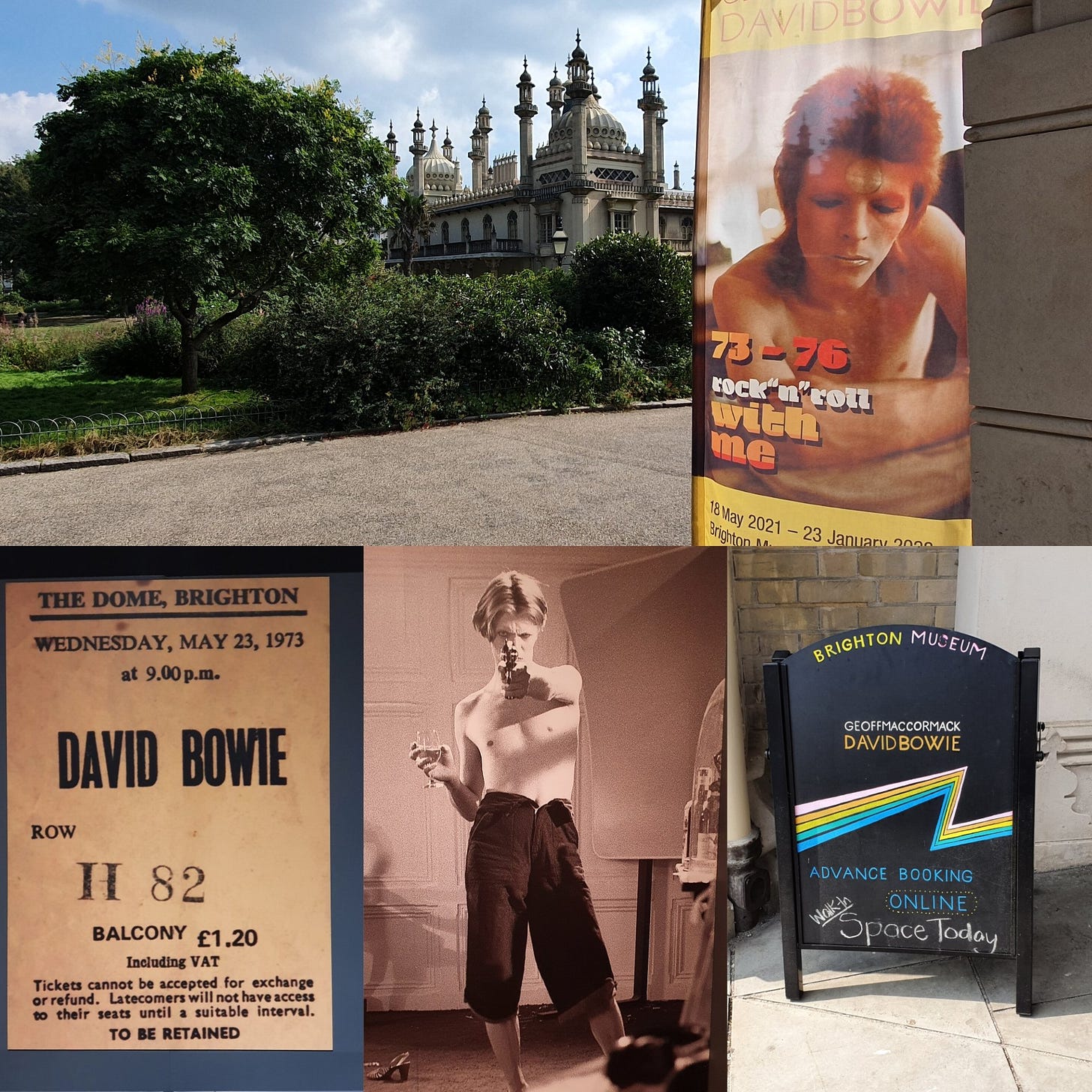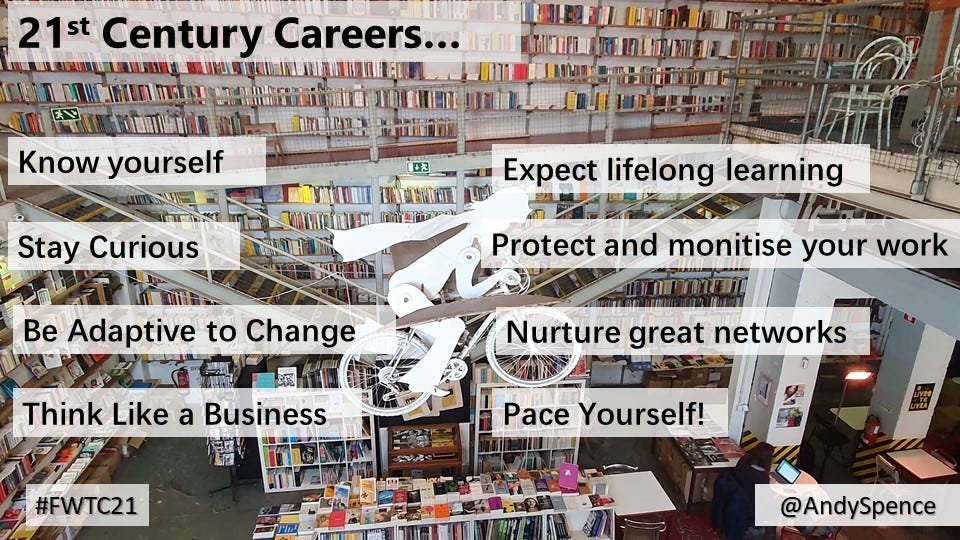👋 This is the 20th regular update from the Workforce Futurist Newsletter – which is read by those on a journey to make work better.
📬 You can get future issues delivered to your inbox, just enter your email here:
Today’s Workforce Futurist is brought to you by…Huler
Technology has changed the way we work, live, and play. The overwhelming number of work tools and platforms we all use has skyrocketed, leaving us burnt out and less productive. On average, we use 30+ different platforms, sites, and systems in a typical work week!
HulerHub is specially designed to reduce wasted time, connect everything you need together, offer a personalised employee experience, and organise your work and life – so you can get more done, faster.
I delivered my first speech for more than 20 months yesterday in front of real people. It was unexpectedly exciting and energising.
I was in Lisbon talking about how new technology is changing work and what it might mean for careers. The word career comes from the Latin carrus, relating to wheeled vehicles and journeys. This gives us chariots and cars, and for some, the feeling of going round and round and round...
Careers are a very personal journey tightly meshed into our broader lives, and how we feel about work.
In surveys, 37% of UK workers find their work meaningless, which is shocking.
Academic research on what makes work meaningful, indicates this is a very personal perspective, wrapped up in childhood experience, culture, personality preferences.
As a child, after school, I remember my mum telling us about her work as a community nurse. The genuine care, the appreciative patients, the leg ulcers, and the crying babies. I didn’t follow her career path, but it definitely influenced my views on work.
Careers in Korea
“Squid Game” is the most popular original content show on Netflix. It is set in South Korea, where a group of indebted individuals are persuaded to participate in a series of games, with very high stakes for the winners and losers. It portrays a violent dystopia, and is not to everyone’s taste.
The drama has captured peoples’ imaginations around the world. One possible reason is that it reflects anxiety about costly housing, access to good jobs, and household debt - which in South Korea now exceeds the country's annual economic output.
Halfway through my talk, I noticed that I had referenced five or six movies - a reflection of how I spent the winter lockdown.📺
The 100 Year Life
Babies born in richer countries are expected to live way past 100.
This has many implications for society, some of which are outlined in the book, the 100 Year Life, by Lynda Gratton and Andrew Scott. Studying for the first 20 years of our life, then working for the next 40 at full pelt is not a sustainable model. Education models will be transformed in the next decade as we find a way to mesh technology, storytelling, behavioural science and gamification on a massive scale. Paying $50k per year for higher education tied to one institution with historical links to a city will seem rather quaint. Education systems are a public investment in the young with an exponential payoff for society. There’s a grand vision of educating billions with the social and economic benefits.
Alongside this we will also see new ways to gain funding and sponsorship for individuals and teams. Lambda school models for example, where individuals are trained then pay the cost after they are in paid work. Talent Protocol are building technology to enable individuals to do this with their own social token - from the aspiring Portuguese Astronaut to the future President of the Republic of Cyprus.
Career Reinvention - 100 Lives
Professor Herminia Ibarra has spent part of her career studying careers and has developed some principles for career reinvention.
One that stands out for me is “Develop many possible selves”
When you don’t know what the future will bring, or when the path you thought you were on takes an unexpected turn, it makes sense to pursue a diverse portfolio of options rather than just sticking single-mindedly to one. Even in happier times, career change is never a perfectly linear process. It’s a necessarily messy journey of exploration — and to do it right, you have to experiment with, test, and learn about a range of possible selves.
21st Century Careers
In the audience yesterday were some students whose ears pricked up when I mentioned the metaverse, tokenisation of work, playbourers and those making a living in the virtual economy. I shared some personal views on 21st Century Careers. Their work journey is just beginning and I have a feeling it will be very different to previous generations as we reframe and rebalance work, value, time, and leisure.
STOP PRESS - You can see a video of the talk in Lisbon here.









